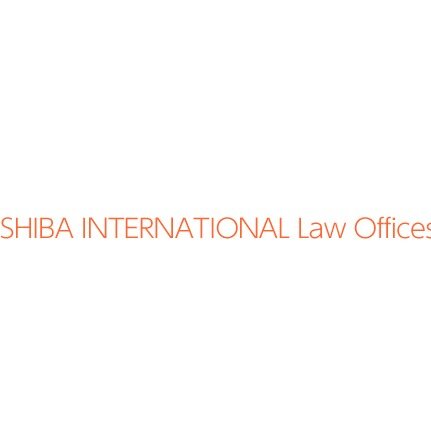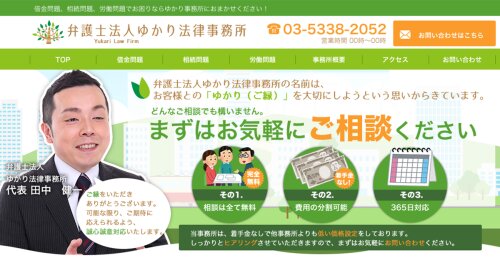Best Bankruptcy & Debt Lawyers in Tokyo
Share your needs with us, get contacted by law firms.
Free. Takes 2 min.
List of the best lawyers in Tokyo, Japan
About Bankruptcy & Debt Law in Tokyo, Japan
Bankruptcy and debt law in Tokyo, Japan, are meant to provide structured solutions for individuals and businesses struggling with financial difficulties. The legal system facilitates various processes, such as debt restructuring, legal rehabilitation, and outright bankruptcy, to alleviate financial burdens. The framework is designed not only to offer a fresh start to debtors but also to ensure fair treatment for creditors. In Tokyo, as the economic heart of Japan, legal professionals specializing in bankruptcy and debt issues are adept at navigating complex cases that can arise due to the city's vibrant business landscape.
Why You May Need a Lawyer
There are a variety of scenarios where individuals and businesses in Tokyo might seek legal help concerning bankruptcy and debt. For instance, if you are overwhelmed by personal debt and considering personal bankruptcy, an attorney can guide you through the complexities of filing and the potential consequences. Businesses facing insolvency may need a lawyer to explore rehabilitation options, restructuring, or filing corporate bankruptcy. Additionally, creditors seeking to recover debts may require legal assistance in ensuring their rights are upheld through the bankruptcy or debt collection process. Legal advice can also be crucial when negotiating with creditors to reach an out-of-court settlement.
Local Laws Overview
The key legislation governing bankruptcy and debt issues in Tokyo is the Bankruptcy Act and the Civil Rehabilitation Act. These laws provide the legal framework for addressing various insolvency situations, whether through asset liquidation or financial reorganization. The Corporate Reorganization Law also plays a crucial role when dealing with corporate bankruptcies. The legal process typically involves a trustee overseeing the proceedings, ensuring fair distribution of assets, or supervising the reorganization plan's implementation. It's important to understand that Tokyo, being part of the broader jurisdiction of Japan, abides by these national laws, while local nuances may affect procedural aspects.
Frequently Asked Questions
What is the difference between personal bankruptcy and corporate bankruptcy?
Personal bankruptcy involves individuals filing for relief under the Bankruptcy Act to discharge personal debts, while corporate bankruptcy pertains to businesses undergoing legal processes to manage or absolve financial obligations, often guided by the Corporate Reorganization Law.
Is there a way to avoid filing for bankruptcy?
Yes, alternatives such as debt consolidation, negotiation for lowered repayment terms with creditors, or entering into voluntary arrangements may avoid the necessity of filing for bankruptcy.
How does Japan's Civil Rehabilitation Act work?
The Civil Rehabilitation Act allows debtors to propose a rehabilitation plan to restructure their repayment terms, aiming to continue business operations while managing debts sustainably.
What assets can be retained during a bankruptcy proceeding?
The Japan legal system permits debtors to retain certain exempt assets necessary for daily life, including some personal items and living allowances, subject to legal limits.
How long does the bankruptcy process typically take in Tokyo?
The length of the bankruptcy process varies; personal bankruptcy might take several months, while corporate bankruptcy can last longer, depending on the complexity of the case and court schedules.
Can foreigners file for bankruptcy in Tokyo?
Foreigners residing in Japan can file for bankruptcy if they meet legal residency requirements and have an adequate connection to Japan, such as assets or business activities within the country.
What role does a trustee play in bankruptcy proceedings?
A trustee is appointed to manage the debtor's estate, ensuring proper distribution of assets to creditors or overseeing the implementation of a reorganization plan.
What happens to secured debts in bankruptcy?
Secured debts are typically prioritized, and secured creditors may reclaim their collateral. Any remaining debt after liquidation or agreement terms may be addressed depending on the bankruptcy type.
Is it mandatory to hire a lawyer for bankruptcy proceedings in Japan?
While not mandatory, hiring a lawyer is highly recommended to navigate legal complexities and safeguard one's interests during bankruptcy proceedings.
How does bankruptcy affect credit ratings in Japan?
Filing for bankruptcy will negatively impact your credit rating, making it challenging to obtain loans or engage in credit-based transactions until rehabilitation is demonstrated over time.
Additional Resources
Consider reaching out to the following organizations for assistance with bankruptcy and debt issues in Tokyo:
- Tokyo Bar Association - Provides legal referral services and advice.
- Japan Legal Support Center (Houterasu) - Offers information and services for legal issues, including debt relief.
- Public Information Centers for Insolvency - Can provide free consultations and education about bankruptcy procedures.
Next Steps
If you need legal assistance regarding bankruptcy and debt in Tokyo, it's advisable to first determine your current financial situation. Compiling all financial documents and understanding your debt obligations is crucial. After this, consider consulting with a lawyer specialized in bankruptcy law to discuss your options. You can contact the local bar association or legal support centers for recommendations and referrals to competent professionals in the field. Preparing for your consultation involves listing questions, concerns, and potential goals for resolving your financial issues. This preparation will help maximize the efficiency and effectiveness of legal counsel.
Lawzana helps you find the best lawyers and law firms in Tokyo through a curated and pre-screened list of qualified legal professionals. Our platform offers rankings and detailed profiles of attorneys and law firms, allowing you to compare based on practice areas, including Bankruptcy & Debt, experience, and client feedback.
Each profile includes a description of the firm's areas of practice, client reviews, team members and partners, year of establishment, spoken languages, office locations, contact information, social media presence, and any published articles or resources. Most firms on our platform speak English and are experienced in both local and international legal matters.
Get a quote from top-rated law firms in Tokyo, Japan — quickly, securely, and without unnecessary hassle.
Disclaimer:
The information provided on this page is for general informational purposes only and does not constitute legal advice. While we strive to ensure the accuracy and relevance of the content, legal information may change over time, and interpretations of the law can vary. You should always consult with a qualified legal professional for advice specific to your situation.
We disclaim all liability for actions taken or not taken based on the content of this page. If you believe any information is incorrect or outdated, please contact us, and we will review and update it where appropriate.
Browse bankruptcy & debt law firms by service in Tokyo, Japan
Tokyo, Japan Attorneys in related practice areas.















